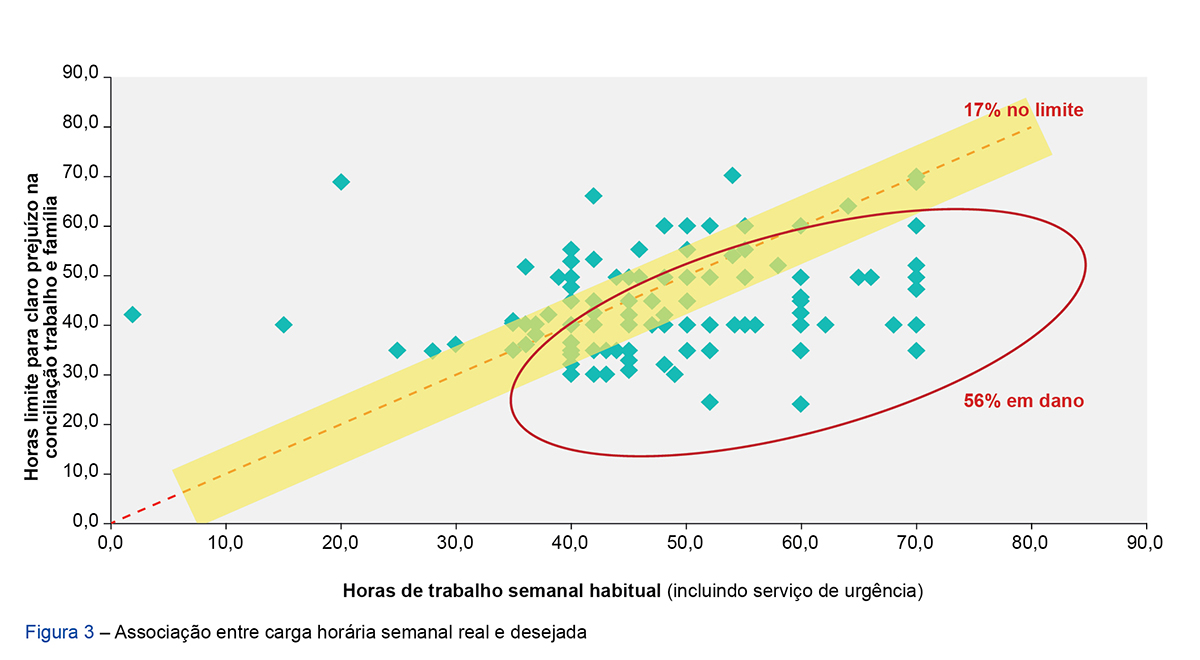SOCIAL MEDIA
Portuguese Medical Association's Scientific Journal

Introduction: The aim of this study is to characterize and assess work-family balance within the medical profession in Portugal.
Material and Methods: This cross-sectional and exploratory study analyzed a sample of 181 doctors who are members of the Portuguese Catholic Doctors’ Association. A qualitative survey with multiple-choice questions was applied in order to assess socioeconomic and working conditions as well as work-family balance. Descriptive and linear regression analyses were carried out.
Results: Nearly 40% of the surveyed doctors negatively assessed the work-family balance within the private sector. As for the Portuguese National Health System, 73% negatively assessed the work-family balance within the public sector. More than half of those surveyed (56%) worked more hours than what they considered as harmful for their work-family balance and the vast majority was working at the limit or overtime. Data collected enabled us to associate a heavier workload with working in the emergency room, age and men. Moreover, it was observed that working more hours was not linked to having children or being married.
Discussion: In our study, the three measures of work-family balance that the participants considered to be the most important were the possibility of flexible scheduling, part-time work and temporarily reducing working hours (e.g. for family assistance). These aspects may explain the differences found in the assessment of work-family balance between the public and private sector.
Conclusion: Due to the demanding nature of the medical profession, doctors are placed into a particularly risky situation in order to achieve a suitable work-family balance. The results of our study indicate a general dissatisfaction regarding this balance – special in the public sector – which is mainly associated with excessive weekly working hours.
Keywords: Family; Job Satisfaction; Physicians; Portugal; Work-Life Balance; Work Schedule Tolerance; Workload
Full article available here (in Portuguese only)